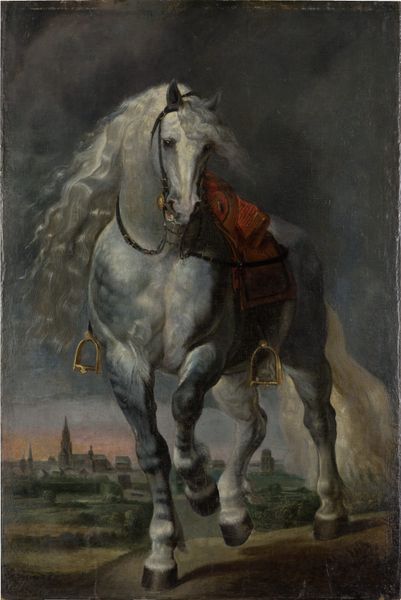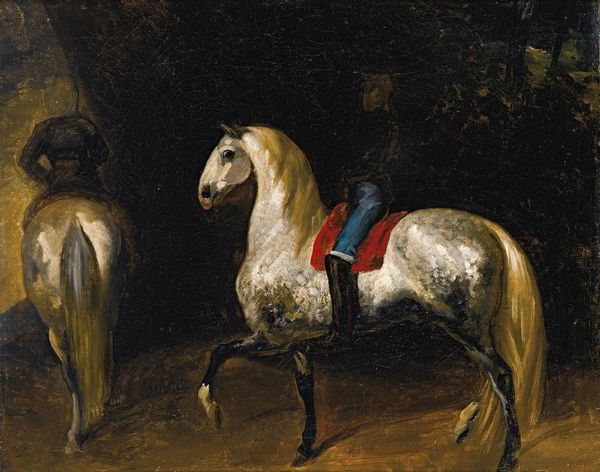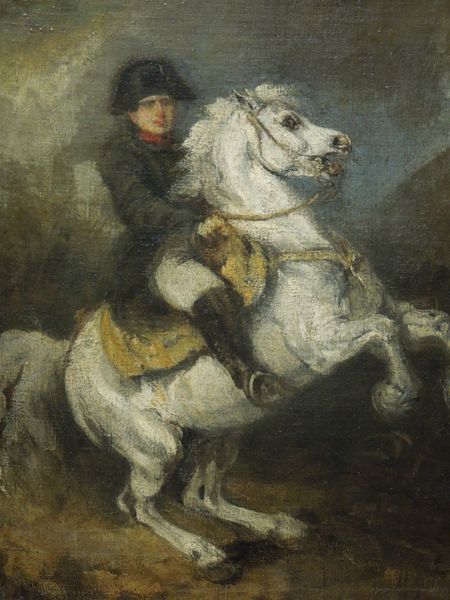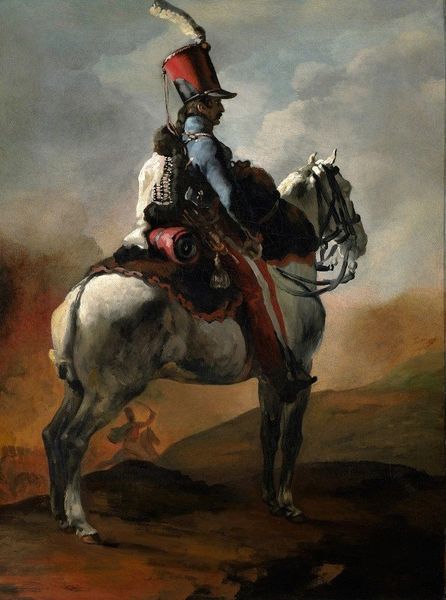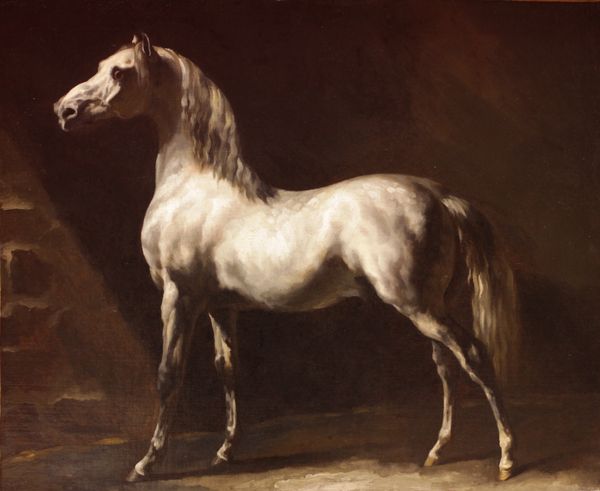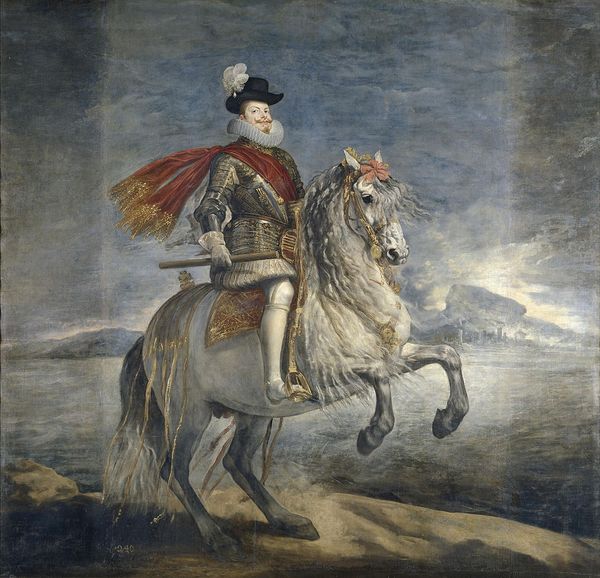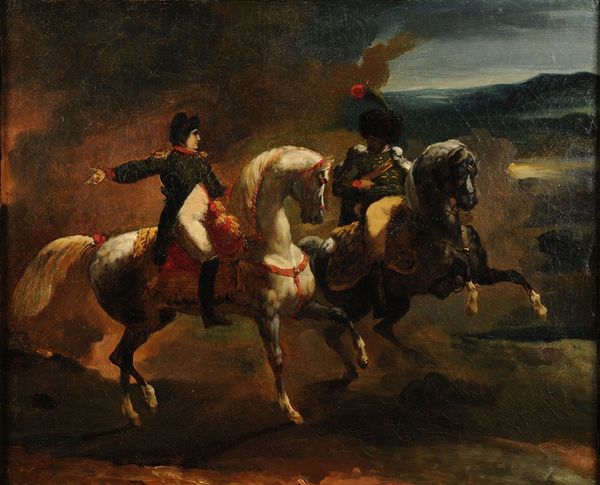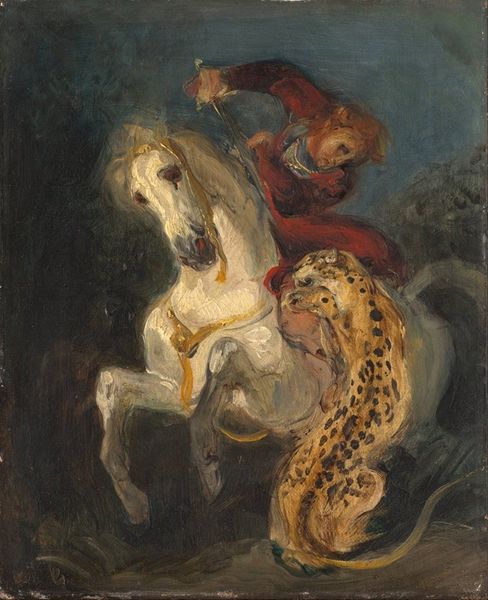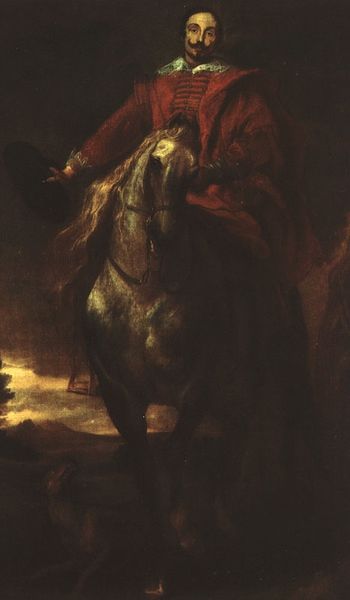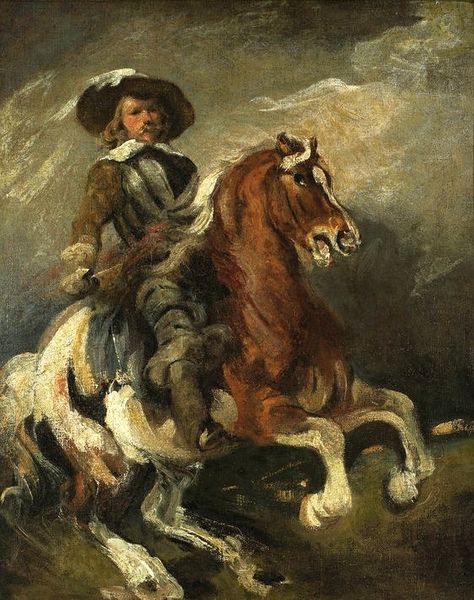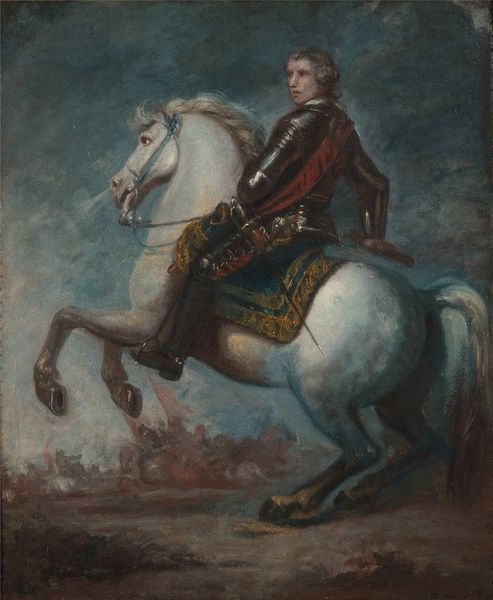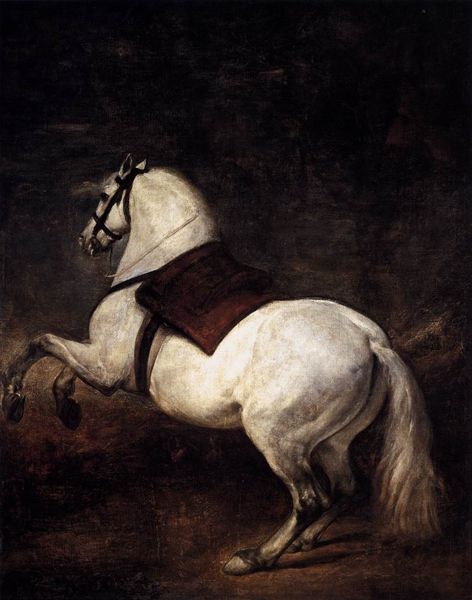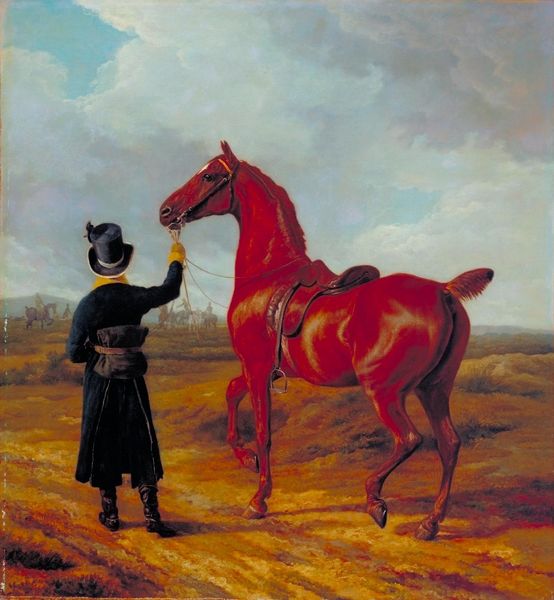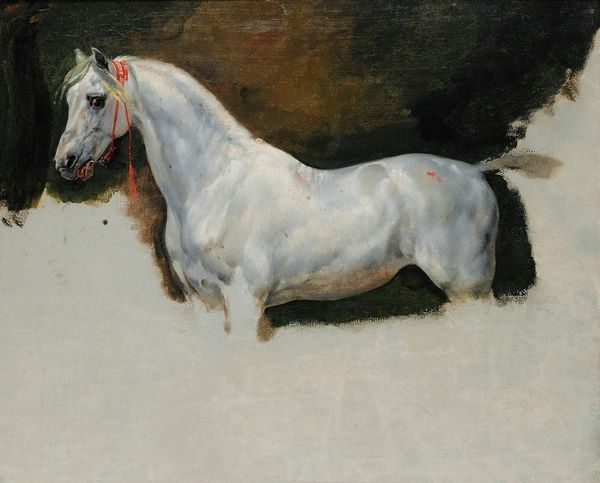
painting, oil-paint
#
animal
#
painting
#
oil-paint
#
landscape
#
figuration
#
oil painting
#
romanticism
#
horse
Dimensions: 37 x 45.2 cm
Copyright: Public domain
Editor: Here we have Théodore Géricault's "Napoleon's Stallion, Tamerlan," an oil painting. The dramatic lighting really makes the horse the focal point. How do you interpret this work, particularly its possible commentary on power and representation? Curator: The painting of Tamerlan provides fertile ground for exploring how Romanticism grapples with power. Consider the era’s fascination with individual genius and heroism, especially through a figure like Napoleon. Yet, by focusing on the stallion—an instrument of power rather than the wielder himself—Géricault subtly critiques the glorification of military prowess. Editor: That's a fascinating angle. It makes me think about how often the instruments of power are overlooked when we discuss historical figures. The horse isn't just a horse, it is part of Napoleon's image. Curator: Exactly! Consider, too, how the "Romantic" white stallion acts as a metaphor, perhaps, for purity, and contrasts it with the reality of war and domination. Do you see any tension between the raw power of the animal and its domesticated role? Editor: Now that you mention it, definitely. There's something almost melancholic about the horse, as if it's aware of its role in this whole historical spectacle. How can we tie that melancholy back to our understanding of power structures? Curator: Think about the lasting impact of the Napoleonic era and the romanticized image of conflict, in contrast with those most vulnerable: the soldiers, the conquered people, the animals that were literally consumed by the battles and colonial aims. Géricault captures that underlying cost. What do you make of it now? Editor: It paints a less glamorous picture. The painting now serves as a reminder to analyze not only the narrative that history conveys but what is lost or obscured. Thanks, I learned a lot. Curator: The dialogue, between us, enriches how we approach artwork.
Comments
No comments
Be the first to comment and join the conversation on the ultimate creative platform.
